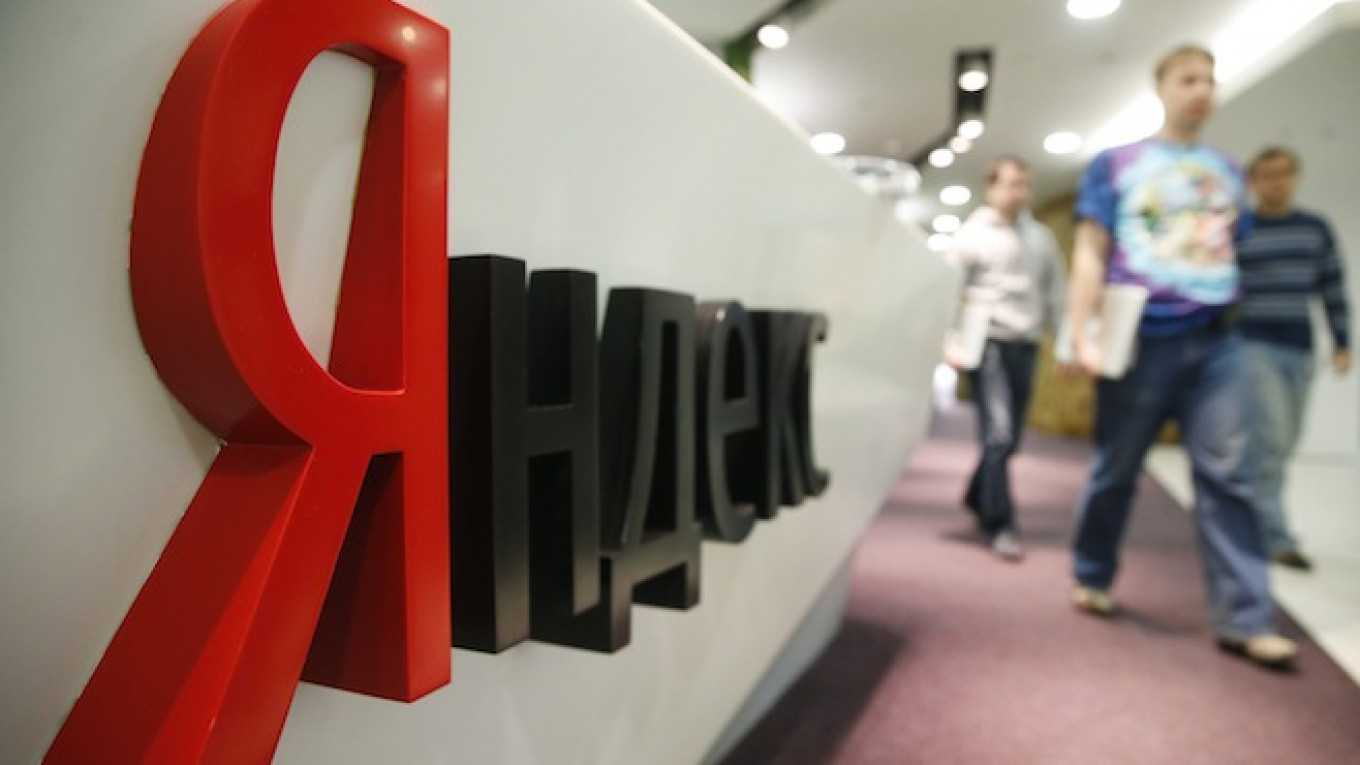Russian search engine Yandex said Tuesday that it planned to capitalize on its expertise in data analysis to develop its business beyond Russia — which could help drive its expansion as advertising revenue growth slows.
Yandex, the market-leading Internet search engine in Russia with a market share of 60 percent, gets the bulk of its revenues from text-based advertising which have been hit by the country's economic downturn.
It also offers free e-mail, maps, music streaming and other services aimed mostly at Russian-speaking consumers. Since it listed its shares in New York in 2011, Yandex has been trying to expand beyond former Soviet countries.
The company said it had applied technology widely used in its search engine to develop other products. These include tools to help retail banks predict what products customers want and to help software developers target advertising campaigns.
The Yandex Data Factory project, which has offices in Moscow and Amsterdam, is designed to help companies in Russia and elsewhere to increase sales, cut costs, forecast demand, develop new or improve existing methods of audience-targeting, it said.
"The mathematics of big data is an asset we have so far applied to one model in one market," said Yandex CEO Arkady Volozh.
"Our growth rate is falling as scale increases. … What next? We see we've got an asset we could apply elsewhere, and we are trying various business models," he said.
The company gave no estimate for future revenues, saying only it had already received requests from various industries.
Yandex said in October that it saw sales rising 27-30 percent this year, a slowdown from 37 percent in 2013 and 44 percent in 2012, as the Russian economy headed for recession following Western sanctions over the Ukraine crisis and a slump in oil prices.
A Message from The Moscow Times:
Dear readers,
We are facing unprecedented challenges. Russia's Prosecutor General's Office has designated The Moscow Times as an "undesirable" organization, criminalizing our work and putting our staff at risk of prosecution. This follows our earlier unjust labeling as a "foreign agent."
These actions are direct attempts to silence independent journalism in Russia. The authorities claim our work "discredits the decisions of the Russian leadership." We see things differently: we strive to provide accurate, unbiased reporting on Russia.
We, the journalists of The Moscow Times, refuse to be silenced. But to continue our work, we need your help.
Your support, no matter how small, makes a world of difference. If you can, please support us monthly starting from just $2. It's quick to set up, and every contribution makes a significant impact.
By supporting The Moscow Times, you're defending open, independent journalism in the face of repression. Thank you for standing with us.
Remind me later.






